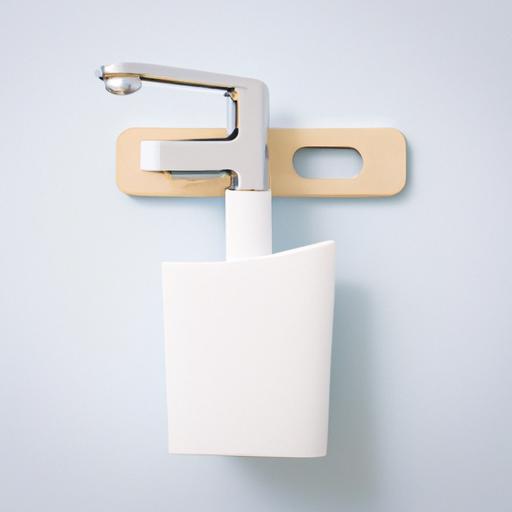Unleashing the Power of EVP in Homegoods and Home Décor Product Development
Introduction
In today’s competitive market, where homegoods and home décor businesses are vying for supremacy, attracting and retaining top talent has become paramount. But how can companies stand out? The answer lies in harnessing the power of Employee Value Proposition (EVP) in the context of product development. By creating an EVP that resonates with employees, companies can unlock their full potential and drive innovation in this thriving industry.
Paragraph 1: EVP, also known as the Employee Value Proposition, is the unique set of benefits and rewards that an organization offers to its employees in exchange for their contributions and dedication. When applied to the realm of homegoods and home décor product development, EVP becomes a vital tool for attracting and retaining top talent. It goes beyond a mere paycheck and encompasses the holistic employee experience, including compensation, career opportunities, work-life balance, company culture, and more.
Paragraph 2: In an industry where creativity and innovation are the lifeblood of success, EVP plays a pivotal role in creating an environment that fosters the growth and development of employees. By aligning EVP with the core values and culture of the company, organizations can attract individuals who are not only highly skilled but also share the same passion for homegoods and home décor. When employees feel a strong connection to the company’s mission and values, they are more likely to go above and beyond to bring forth groundbreaking ideas and products.
As we delve deeper into the significance of EVP in product development for the homegoods and home décor industry, we will explore the ways it can drive business success, enhance employee engagement, and shape the overall company performance. So, join me on this journey to unleash the power of EVP and revolutionize the world of homegoods and home décor product development.
Understanding the Homegoods and Home Décor Market
Brief Overview of the Homegoods and Home Décor Industry
The homegoods and home décor industry encompasses a vast array of products and services aimed at enhancing the aesthetic appeal and functionality of homes. From furniture and lighting to textiles and accessories, this industry caters to the ever-evolving tastes and preferences of homeowners and interior design enthusiasts. With the increasing emphasis on creating personalized and inviting living spaces, the demand for innovative and stylish homegoods and home décor products continues to rise.
Market Trends and Opportunities in the Industry
In recent years, the homegoods and home décor market has witnessed several notable trends that have reshaped the industry landscape. One prominent trend is the growing preference for sustainable and eco-friendly products. Consumers are increasingly conscious of the environmental impact of their choices and seek products that are made from sustainable materials and produced using environmentally friendly processes.
Another significant trend is the integration of technology into homegoods and home décor products. Smart home technology has revolutionized the way we interact with our living spaces, enabling features like automated lighting, temperature control, and voice-activated assistants. This fusion of technology and design has opened up new opportunities for companies to create innovative and convenient products that cater to the modern lifestyle.
Competition Analysis and Challenges Faced by Companies in this Sector
The homegoods and home décor industry is highly competitive, with both established brands and emerging players vying for market share. Companies face various challenges in this sector, including the need to stay on top of changing consumer preferences, maintain quality standards, and navigate supply chain complexities. Additionally, the industry’s reliance on design and aesthetics necessitates constant innovation and creativity to capture the attention of discerning consumers.
To thrive in this competitive landscape, companies must differentiate themselves through unique product offerings, exceptional customer experiences, and effective marketing strategies. By understanding the market trends, identifying untapped opportunities, and addressing the challenges head-on, businesses can position themselves for success in the dynamic world of homegoods and home décor.
Stay tuned as we explore how implementing EVP in product development can give companies a competitive edge in this vibrant industry.
The Significance of Product Development in Homegoods and Home Décor
Explaining the Crucial Role of Product Development in this Industry
Product development holds a pivotal role in the homegoods and home décor industry, serving as the driving force behind business success. It involves the process of conceptualizing, designing, and bringing to life innovative and appealing products that captivate customers and meet their evolving needs. By investing in product development, companies can stay ahead of the curve, stand out from the competition, and create a loyal customer base.
How Innovative and Appealing Products Drive Business Success
Innovation is the key to thriving in the dynamic landscape of the homegoods and home décor industry. By continuously pushing the boundaries of creativity, companies can introduce products that capture the imagination and desires of customers. Innovative and appealing products not only attract new customers but also retain existing ones, fostering brand loyalty and driving repeat business. They have the power to transform a company from being a follower to becoming an industry leader.
The Impact of Effective Product Development on Customer Satisfaction and Brand Reputation
Effective product development plays a crucial role in enhancing customer satisfaction and building a strong brand reputation. When companies invest time and resources into developing high-quality products that meet or exceed customer expectations, they create a positive experience that fosters customer loyalty and advocacy. Satisfied customers become brand ambassadors, spreading positive word-of-mouth and attracting new customers. Additionally, a reputation for delivering innovative and appealing products positions a company as a trusted and reliable brand within the homegoods and home décor industry.
In the next section, we will explore how integrating EVP into the product development strategies of homegoods and home décor companies can amplify their success, attract top talent, and foster a culture of innovation. Let’s dive into the exciting possibilities that await!
Implementing EVP in Product Development for Homegoods and Home Décor
Definition and Components of EVP
To successfully implement EVP in product development for homegoods and home décor, it is crucial to understand its definition and components. EVP comprises the unique offerings and benefits that an organization provides to its employees in exchange for their skills and contributions. It encompasses various elements such as compensation, career growth opportunities, work-life balance, recognition, and the overall employee experience.
Importance of Aligning EVP with Company Values and Culture
Aligning EVP with the company’s values and culture is paramount for creating a cohesive and engaging work environment. When employees perceive a strong alignment between their personal values and those of the company, they are more likely to feel motivated and committed. By fostering a culture that encourages creativity, collaboration, and innovation, organizations can reinforce their EVP and attract talent that resonates with the brand’s identity.
Ways to Integrate EVP into Product Development Strategies
Integrating EVP into product development strategies requires a thoughtful and deliberate approach. Companies can begin by involving employees in the decision-making process, encouraging their active participation, and valuing their input. This inclusion not only enhances the EVP but also drives innovation by leveraging the diverse perspectives and expertise of the workforce. Additionally, providing opportunities for professional growth and development, such as training programs and mentorship initiatives, demonstrates a commitment to nurturing talent and reinforces the EVP.
Examples of Successful EVP Implementation in the Industry
Several companies in the homegoods and home décor industry have successfully implemented EVP in their product development strategies. For instance, Company X places a strong emphasis on work-life balance, offering flexible working hours and remote work options. This commitment to employee well-being has resulted in increased job satisfaction and productivity, leading to innovative product designs that resonate with customers. Similarly, Company Y has built a culture of continuous learning, providing employees with regular training sessions and opportunities to attend industry conferences. This investment in employee development has empowered their team to create cutting-edge designs and stay ahead of market trends.
By implementing EVP effectively, companies in the homegoods and home décor industry can enhance employee satisfaction, drive innovation, and ultimately deliver exceptional products that captivate customers.
Benefits of EVP in Homegoods and Home Décor Product Development
Attracting Top Talent and Skilled Professionals
In a fiercely competitive industry like homegoods and home décor, attracting the best talent is crucial for success. A strong EVP acts as a magnet, drawing in top-notch professionals who are passionate about the industry and eager to contribute their expertise. By showcasing the unique opportunities, growth potential, and enticing rewards that come with working for the company, EVP becomes a powerful tool in attracting individuals who possess the skills and knowledge necessary to drive innovation and propel the business forward.
Increasing Employee Engagement and Job Satisfaction
Engaged employees are the heartbeat of any successful organization. When employees are committed and passionate about their work, they go the extra mile to deliver exceptional results. EVP plays a significant role in fostering employee engagement and job satisfaction by addressing their needs and desires. Offering competitive compensation, access to professional development programs, a supportive work environment, and recognition for achievements not only motivates employees but also cultivates a sense of loyalty and commitment to the company’s mission.
Enhancing Creativity and Innovation in Product Development
Product development in the homegoods and home décor industry thrives on creativity and innovation. EVP creates an environment that nurtures and encourages employees to think outside the box, explore new ideas, and take calculated risks. By providing a platform for employees to voice their opinions, contribute their unique perspectives, and collaborate with cross-functional teams, companies can tap into a wealth of creative potential. This, in turn, leads to the development of innovative products that captivate customers and set the company apart from the competition.
Improving Overall Company Performance and Competitiveness
The benefits of EVP extend beyond the individual employee and have a profound impact on the overall company performance and competitiveness. A strong EVP attracts and retains top talent, resulting in a skilled and motivated workforce that drives productivity, efficiency, and customer satisfaction. With a team of dedicated professionals who feel valued and supported, companies can outshine their competitors, stay ahead of market trends, and continuously innovate to meet evolving customer demands. Ultimately, a robust EVP becomes a catalyst for long-term success in the homegoods and home décor industry.
In the next section, we will explore the key components and strategies for implementing EVP effectively in product development for homegoods and home décor. Stay tuned as we unlock the secrets to leveraging EVP to its fullest potential!
Conclusion
In conclusion, the integration of EVP (Employee Value Proposition) in product development for the homegoods and home décor industry is a game-changer. By prioritizing EVP, companies can attract and retain top talent, fostering a culture of innovation and creativity that leads to remarkable products and business success.
Throughout this article, we have explored the importance of EVP in attracting and retaining top talent in the homegoods and home décor industry. We have seen how aligning EVP with company values and culture can create an environment where employees thrive and feel a strong connection to the organization’s mission.
By implementing EVP in product development strategies, companies can reap numerous benefits. They can attract top talent with the promise of a rewarding employee experience and unleash their potential to create innovative and appealing homegoods and home décor products. This, in turn, leads to increased customer satisfaction and enhanced brand reputation.
Moreover, EVP enhances employee engagement and job satisfaction, resulting in higher levels of productivity and creativity. When employees feel valued and supported, they are more likely to go the extra mile, contributing their best ideas and efforts to the product development process.
In this highly competitive industry, EVP serves as a strategic tool for companies to differentiate themselves and stand out from the crowd. It creates a compelling proposition for both current and potential employees, making the organization an employer of choice.
To succeed in the ever-evolving world of homegoods and home décor, companies must prioritize EVP in their product development strategies. By doing so, they can unlock the full potential of their employees, drive innovation, and ultimately achieve remarkable success in this vibrant industry.
So, embrace the power of EVP, and let it guide you towards a future where homegoods and home décor products transcend expectations, captivating the hearts and homes of customers worldwide.






